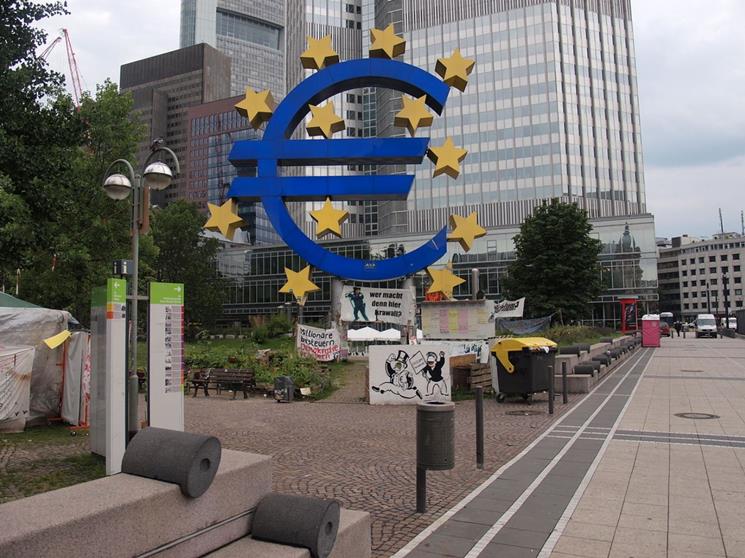The European version of wokedom is unfolding under the watchful eye of Germany’s new foreign minister Annalena Baerbock. As discussed in a previous article, Baerbock looks like she will be the most interventionist-minded, Russophobic, and Euro-federalist German foreign minister ever, one who promotes a nebulous concept of European strategic sovereignty.
Europe’s leftists are positively elated about this. “Germany will advocate its Europeanism with its social, equality, environmental and digital policies,” Spain’s El País newspaper approvingly predicted:
It is no longer enough to manage crises, as Merkel did. A less accommodating and more demanding attitude is now needed, especially towards illiberal partners like Hungary and Poland who do not keep their word. The coalition agreement is the picture of a democratic community confronting the authoritarian alliance forged under the leadership of Moscow and Beijing—a vast and ambitious programme.
Similarly, Austria’s Salzburger Nachríchten (SN) newspaper predicted that the new team in Berlin would counter what it called “authoritarian tendencies” in some EU member states and pave the way for a new superstate. “The coalition agreement reads in parts like a reform program for the European Union,” SN reported. “The EU is to develop into a federal state; close cooperation between armies of reform-minded states is to be established; and above all, Brussels is to act ‘more consistently and promptly’ against any erosion of the rule of [EU] law.” The paper added approvingly that “this is not good news for Viktor Orbán in Budapest and Mateusz Morawiecki in Warsaw.”
Such quotes summarize the spirit of post-national, anti-sovereignist Euro-wokedom which Baerbock champions. This agenda has guided the strategies and policies of unelected Eurocrats in Brussels for decades, but now their allies all over the EU feel emboldened to come clean.
On the opposite side of the political divide, Hungarian Prime Minister Viktor Orbán—the perennial black sheep of the EU machine—summarized the problem of Germany’s new foreign policy in a column he wrote for Germany’s Bild newspaper on Dec. 8, in which he predicted deep rifts in relations with the new government. “As Hungarian Prime Minister in 1998, I was allowed to shape the new Europe together with Helmut Kohl” Orbán noted, praising the late chancellor as “always the fatherly, reliable friend and loyal patron of the Central European peoples.” However, “with the migration crisis in 2015, our unity broke down.” The crisis brought to light profound differences of opinion about the future of the European Union. “For Hungarians and other Central Europeans, the homeland is immanent, the national and cultural identity is substantial,” Orbán wrote. “The development showed that Angela Merkel took a different direction, a post-Christian and post-national path.”
Germany’s leaders did not see migration as problematic, Orbán added, but as natural, even desirable, a fact which weakens European cohesion. “We have different views on migration, gender…and the transfer of competence to Brussels.” The revival of European cooperation will be even more difficult now, Orbán concluded, because “the new left-liberal government is striving away from Kohl’s Europe of Fatherlands and towards a migration- and gender-friendly, German-shaped, centralist policy from Brussels. Here we are no longer standing side by side.”
Orbán is right. A foreign policy based on Baerbock’s variety of Euro-wokedom would be harmful for Germany and Europe. From the realist perspective, it would be in the national interest of Germany to develop a strategy of more equal proximity vis-à-vis the United States and Russia. If Germany’s political, economic, and long-term civilizational interests are considered without the shackles of moralistic rhetoric, it is arguable that the Federal Republic has a more natural community of long-term geopolitical interests with Russia than with the U.S.
Just over a decade ago, I argued for a “neo-Bismarckian” German policy towards Russia during a security conference in Munich. “It was under the Iron Chancellor,” I noted, “the towering genius of Europe’s 19th century diplomacy, that Germany and Russia last had a genuine strategic partnership, based on the compatibility of interests and on the absence of truly insurmountable obstacles.” Such a partnership can and should be renewed. The two powers’ fundamental compatibility is based on the fact that they are both traditional, tellurocratic European nation-states pursuing limited objectives by limited means—in contrast to the leaders of the United States, who still subscribe to the notion of American exceptionalism and to the propositional creed rooted in Puritan millenarianism.
That diagnosis still stands. It is regrettable that this strategic option will be resolutely rejected by the new foreign policy team in Berlin, to the detriment of peace, stability and prosperity of Germany and the Old Continent.
JIP, CC BY-SA 3.0
